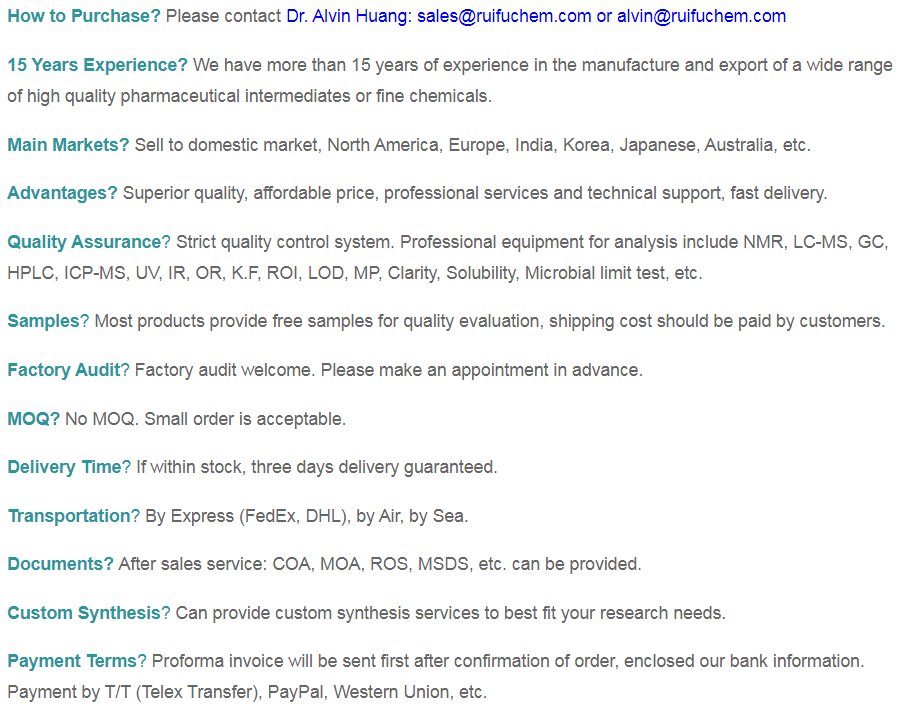1,4,7-Triazacyclononane CAS 4730-54-5 Purity >98.0% (GC)
Ruifu Chemical is the leading manufacturer of 1,4,7-Triazacyclononane (CAS: 4730-54-5) with high quality. Ruifu Chemical can provide worldwide delivery, competitive price, excellent service, small and bulk quantities available. Purchase 1,4,7-Triazacyclononane, Please contact: alvin@ruifuchem.com
| Chemical Name | 1,4,7-Triazacyclononane |
| Synonyms | TACN; Octahydro-1H-1,4,7-Triazonine |
| CAS Number | 4730-54-5 |
| Stock Status | In Stock, Production Scale Up to Tons |
| Molecular Formula | C6H15N3 |
| Molecular Weight | 129.21 |
| Melting Point | 42.0~45.0℃(lit.) |
| Boling Point | 110.0~130.0℃/7 mmHg (lit.) |
| Flash Point | >230°F |
| Solubility in Water | Soluble in Water |
| COA & MSDS | Available |
| Place of Origin | Shanghai, China |
| Brand | Ruifu Chemical |
| Item | Specifications | Specifications |
| Appearance | White to Light Yellow Powder | Conforms |
| Purity / Analysis Method | >98.0% (GC) | 98.26% (GC) |
| Melting Point | 42.0~45.0℃ | 42.0~44.5℃ |
| Heavy Metals | ≤10ppm | <10ppm |
| Loss on Drying | ≤1.00% | 0.95% |
| Total Impurities | <2.00% | Conforms |
| 1 H NMR Spectrum | Conforms to Structure | Conforms |
| Test Standard | Enterprise Standard | Conforms |
Package: Bottle, Aluminium foil bag, 25kg/Cardboard Drum, or according to customer's requirement.
Storage Condition: Store in sealed containers at cool and dry place; Protect from light and moisture.


Hazard Symbols C - Corrosive
Risk Codes 34 - Causes burns
Safety Description
S26 - In case of contact with eyes, rinse immediately with plenty of water and seek medical advice.
S36/37/39 - Wear suitable protective clothing, gloves and eye/face protection.
S45 - In case of accident or if you feel unwell, seek medical advice immediately (show the label whenever possible.)
UN IDs UN 3259 8/PG 2
WGK Germany 3
FLUKA BRAND F CODES 3-10-34
Hazard Class 8
Packing Group III
1,4,7-Triazacyclononane (CAS: 4730-54-5) is a versatile platform from which various ligands can be derived to form effective chelators for (radio)copper(II) complexation. The ability of TACN-derivatives to form highly stable complexes with copper(II) is greatly influenced by the number and type of substituents on the macrocyclic ring. The formed copper(II) complexes show a broad variability in their thermodynamic stability and kinetic inertness, varying in structure from square-pyramidal to distorted octahedral.



